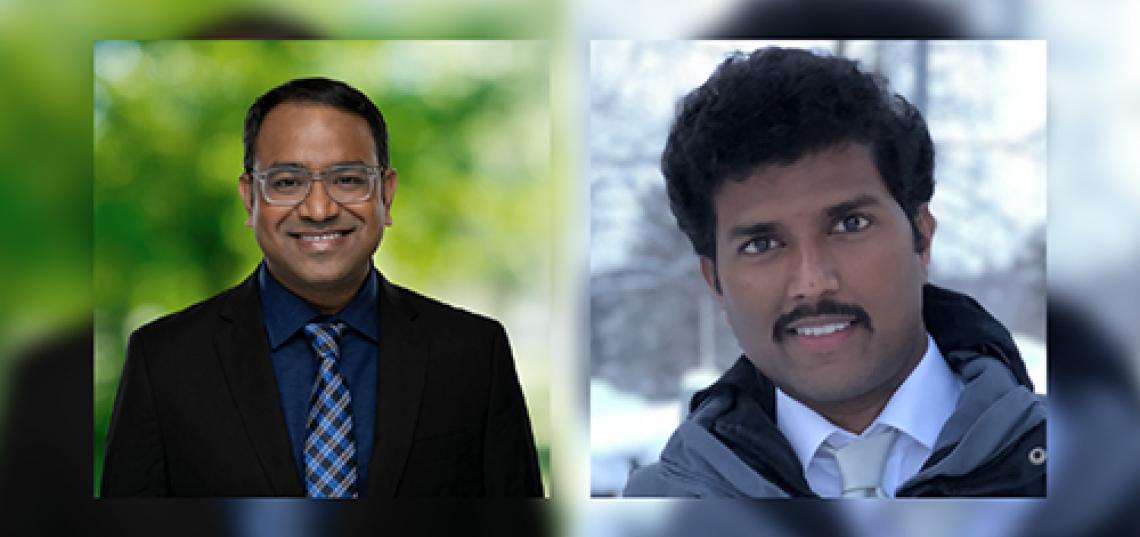
Scholars Kiran Garimella and Shagun Jhaver will join the Library and Information Science Department as assistant professors in fall 2021.
Garimella's research focuses on using digital data for social good, including areas like polarization, misinformation, and human migration. He extensively used data science techniques to tackle such problems, dealing with large-scale datasets from social media.
He is currently the 2021 Michael Hammer Fellow at the Institute for Data, Society and Systems at the Massachusetts Institute of Technology in Cambridge, Massachusetts.
In a tweet, Garimella wrote, “Excited to share that I will be joining Rutgers SCI @RutgersCommInfo as faculty this fall! Excited to be in the iSchool, and work on inter-disciplinary projects!”
According to the MIT website, Garimella is “the first IDSS postdoctoral fellow to receive a Hammer Fellowship, pioneers research into the spread of rumors and misinformation on closed platforms such as WhatsApp, a popular encrypted messaging service with millions of users worldwide. Kiran aims to develop technical solutions to such problems by building tools that can collect and analyze massive social media datasets.”
Prior to MIT, he spent a year as a post-doc at the E ́cole Polytechnique F ́ed ́erale de Lausanne in Lausanne, Switzerland.
Garimella obtained bachelor’s and master’s degrees in computer science from IIIT Hyderabad in India, and his Ph.D. from Aalto University in Helsinki, Finland in 2018. His doctoral dissertation is titled “Polarization on Social Media.”
He has served as a consultant for the World Bank Group; a Research Intern at the University of British Columbia, a Machine Learning Intern at Amazon; a Data Science Intern at LinkedIn; and a Research Engineer at Yahoo! Research in Barcelona.
Shagun Jhaver, whose research examines the governance mechanisms of online platforms to understand how their design, technical affordances, and policies affect public discourse, is currently a Postdoctoral Scholar in the Allen School of Computer Science & Engineering at the University of Washington in Seattle, Washington, and an affiliate at the Berkman Klein Center for Internet & Society at Harvard University in Cambridge, Massachusetts.
Jhaver’s research, according to his website, “is broadly in the areas of social computing and human-computer interaction. I study the governance mechanisms of internet platforms to understand how their design, technical affordances, and policies affect public discourse. I use a mixed-methods approach, combining large-scale casual inference of community data, surveys, and deep qualitative interviews to explore how platforms can address societal issues such as online harassment and the rise of hate groups. My most recent projects evaluate the effects of deplatforming toxic communities and far-right influencers, theorize how to design robust multi-level platform governance, and build end-user moderation tools for YouTube creators.”
Jhaver earned his bachelor’s degree in electrical engineering at the Indian Institute of Technology Bombay in Mumbai, India, and his master’s degree in computer science at The University of Texas at Dallas. He earned his doctorate in computer science at the Georgia Institute of Technology in Atlanta, Georgia. The title of his dissertation is “Identifying Opportunities to Improve Content Moderation.”
Since 2020, Jhaver has also served as a Research Intern at the Max Planck Institute for Software Systems in Saarbrücken, Germany and a Research Advisor at Twitch in Seattle, Washington.
“Looking forward to mentoring students and developing new collaborations,” Jhaver wrote on his website regarding joining the SC&I faculty.
More information about the Library and Information Science Department is on the website.
